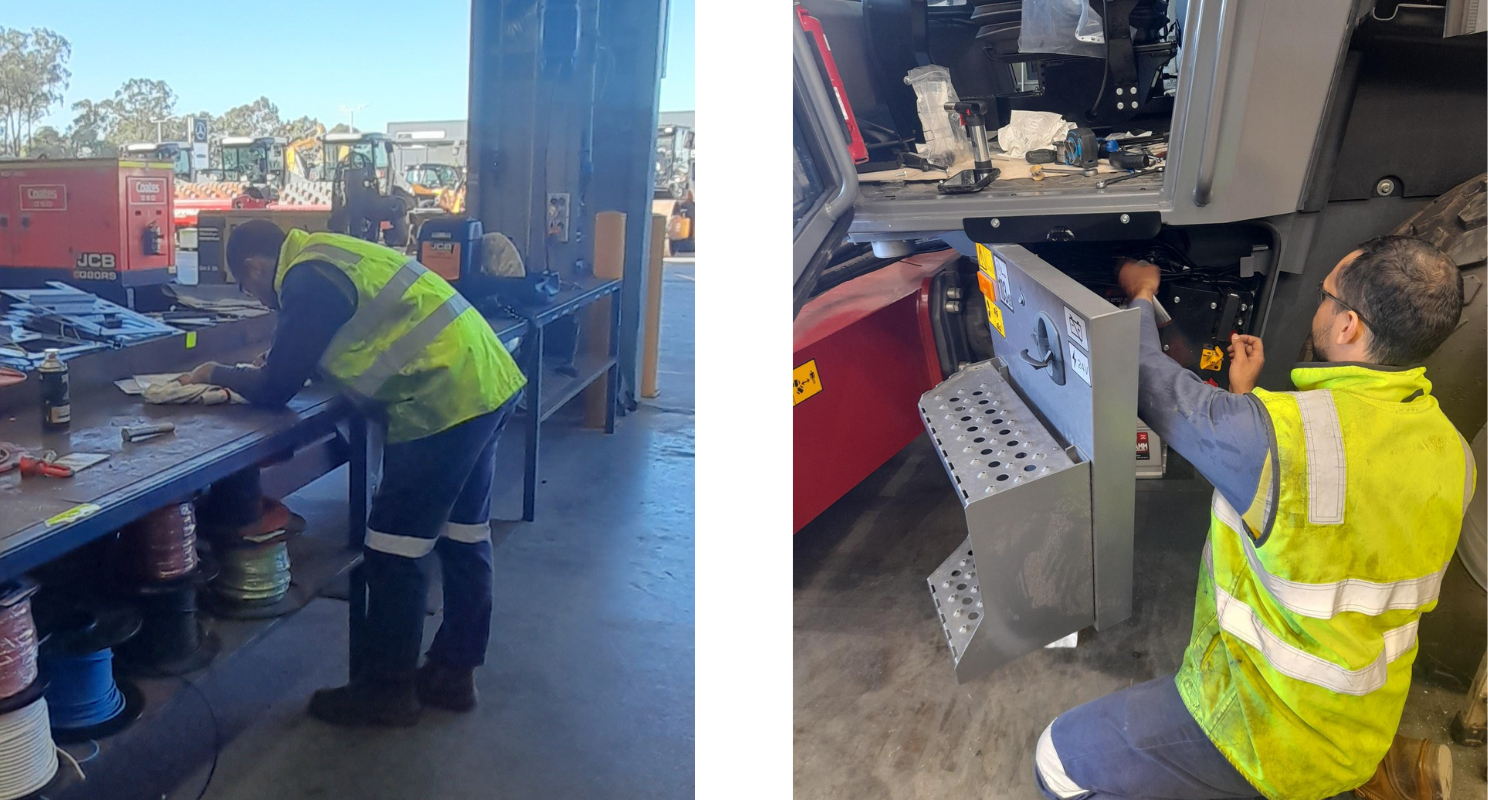Not sure if an apprenticeship is the right move for you? You’re not alone! For many students, choosing a hands-on career path can feel like a big step, but it’s also one filled with exciting opportunities. At CEA, apprenticeships offer the perfect blend of real-world experience, technical training, and career development.
We caught up with Philip, a 3rd Year auto electrical apprentice, to find out what life on the tools is really like. From morning routines and training sessions to on-the-job challenges and proud achievements, this is your inside look at how an apprenticeship at CEA can set you up for success.
What is It Really Like to Be an Apprentice at CEA?
You’ve probably heard the basics about apprenticeships, but what does the day-to-day actually involve? We teamed up with the crew at CEA to answer your top questions and give you a behind-the-scenes look at what it’s really like to be an auto electrical apprentice. Whether you’re curious about the kind of work you’d do, the skills you’ll learn, or how to juggle study and hands-on training, we’ve got you covered!
 Question: How do Apprentices Start Their Workdays?
Question: How do Apprentices Start Their Workdays?
Answer: The day starts with clocking in and checking the notice board or chatting with the supervisor to go over the day’s tasks. From there, it’s straight into safety; assessing the work area and completing a “Take 5” safety check before diving into the job. Once the plan is set, tools are gathered, and the hands-on work begins.
Question: What Kinds of Tasks and Projects Might an Apprentice Work on During the Day?
Answer: Each day is different. Apprentices can find themselves working on anything from new builds to workshop-based repairs and maintenance. Whether it’s diagnosing a problem or helping out on a major piece of equipment or even simply just cleaning up the workshop, there’s always something new to learn, especially from the experienced team members you’re working alongside.
Sharing some extra insider info, Philip states, “I primarily work on JCB machinery, with occasional work on Dynapac and Ditch Witch equipment. My responsibilities cover all aspects of electrical work, including both new builds and repairs. The tasks vary depending on the workload, and can include diagnosing electrical issues, fault finding, and fitting new components such as LED lights, starter motors, and wiring harnesses. I also carry out electrical installations within machine cabins, ensuring systems are properly fitted and functioning safely.”
Question: How do Apprentices Balance Hands-on Work With Formal Learning and Training Sessions?
Apprentices at CEA attend TAFE blocks during the year for formal education, which is part of the training contracts. In the workshop, they have training sessions, including specialised training with JCB machinery, and support from CEA’s internal training team.
Question: What can you Expect as an Auto Electrical Apprentice
Answer: Apprentices start on a lower wage, as expected, but the pay increases each year as you progress. Once you complete your apprenticeship and become a qualified tradesperson, your earning potential grows significantly, especially if you continue to upskill.
Question: What’s Some Good Advice for Aspiring Auto Electrical Apprentices?
The advice that current and past apprentices would give is to be willing to learn and always keep the bigger picture in mind. It’s important to stay focused and remember that every task helps you build your skills for the future. If you’re willing to work hard and stick with it, the rewards are worth it.
 Skills You’ll Build as an Apprentice at CEA
Skills You’ll Build as an Apprentice at CEA
At CEA, apprentices develop key technical skills, including:
- Hands-on experience with tools and workshop equipment.
- Operating JCB machinery.
- Equipment diagnostics and repairs.
- Following safety procedures and understanding WHS standards.
- Real-world workshop experience and effective communication.
However, it isn’t just hard skills that matter; soft skills are really important in an apprenticeship too! Things like good communication, asking questions when you’re not sure, using your initiative to get things done, and always being polite make a big difference on the job.
Not sure where to start? No worries! CEA helps auto electrical apprentices grow by giving them extra training and guidance in the workshop, not just the basics.
At CEA, they also have a dedicated apprentice mentor who is there for apprentices to lean on if needed. These mentors travel to our branches, providing newbies with extra training to help them reach our best potential.
Why an Auto Electrical Apprenticeship at CEA is a Great Career Move
After finishing an apprenticeship with CEA, there are a few different career paths you can take. You could go on to do a dual trade or even move into leadership positions if you keep learning and building your skills! For those who show passion and a strong work ethic, there are real opportunities to grow and move up, just like Philip, a 3rd Year apprentice who just won the CEA QLD Yearly Apprentice Award. If his glowing review of the CEA auto electrical apprenticeship program doesn’t inspire you, we don’t know what will!
“In 2024, I was proud to receive the CEA QLD Yearly Apprentice Award, it really meant a lot after a year of hard work, learning on the job, and pushing myself to grow.”
Starting an apprenticeship with CEA is more than just learning a trade, it’s about kickstarting a career with purpose. You’ll build valuable skills, work alongside experienced mentors, and grow in an environment that supports your success. From humble beginnings to award-winning achievements, apprentices like Philip prove that with hard work and the right support, anything is possible.
If you’re ready to get stuck in, learn on the job, and carve out a rewarding career path, an auto electrical apprenticeship at CEA might be exactly what you’ve been looking for!

